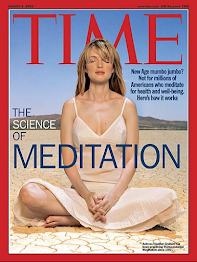Almost half of us have one or more chronic health conditions and these conditions make up our leading cause of death.
Would you prefer to read about statistics – or become one?
Challenging question maybe, but when it comes to our health, it is clear that collectively Australians are not doing too well. In this post, a summary of the bi-annual report on our national health issued by the Australian Institute of Health and Welfare (AIHW); and then the choice…
Become a statistic, or read about them, and if you prefer reading, details of the one thing most likely to assist you to avoid becoming that statistic, but first, one of my own quotes seems relevant for this topic:
Thought for the day
To change your habits - the way you function
First change your beliefs - the way you think
Ian Gawler
Almost half of all Australians have one or more chronic health conditions and these conditions make up our leading cause of death.
While the cause or causes of any one individual’s health condition is likely to be complex, and having had what is well described as a major chronic degenerative disease myself; this post is not about blaming or shaming those who do have such conditions, but is all about encouraging those who are basically well to truly appreciate their current good health and realise there is plenty you can do to maintain that good health.
Here are 2 simple facts:
1. The major identifiable causes of chronic degenerative disease are lifestyle related
2. Lifestyle changes are known to significantly aid in recovery from chronic degenerative disease.
Here is a simple choice:
1. Get in early, adopt a heathy lifestyle and do all possible to not only avoid developing a chronic degenerative disease, but to experience chronic good health
2. Ignore the connection between lifestyle and health, hope for the best, and if the worst does turn up and a chronic disease ensues, then take up a healthy lifestyle to compensate.
Why is this choice so important?
A staggering number of people alive today are dealing with major physical and mental health issues.
Every 2 years, the AIHW publishes its analysis of our collective health
It makes for tough reading – and drove the writing of this post…
Key points:
• Almost half of all Australians have one or more chronic health conditions
• Chronic conditions are the nation's leading cause of illness, disability and death
• Coronary heart disease and dementia are the leading causes of death overall
• For young Australians, accidents and suicide are the leading causes of death
• Over one third of Australia's "disease burden" is due to preventable risk factors, such as smoking, physical inactivity and poor nutrition
• Two in three Australian adults are overweight or obese • Three in 10 adults do not get enough physical activity
• Less than one in 10 adults consume the recommended amount of vegetables
• Some good news - smoking rates have fallen to a record low of just 11 per cent
• One in two Australian adults experience a mental health disorder during their lifetime
• Average levels of psychological distress were higher in 2020, 2021 and early 2022, especially in younger people, and there was also an increase in self-harm and suicidal ideation presentations to emergency departments
• In 2020, an average of nine people died every day by suicide
• More than half of all deaths by suicide were among people aged 30-59, and males were three to four times as likely as females to take their own life
• $202.5 billion was spent on health in 2019-20, about $7,900 per person
• Children born in 2020 can expect to live to 83
AIHW: Australia's Health 2022
About the only statistic listed I would be happy to be associated with is the one where so few people are smoking these days (not that I ever did fortunately).
The rest of these statistics do strike me as something of an inditement against our culture. Almost half of us have a chronic disease. Around half experience mental health disorders during their life! $202.5 billion spent on health on one year. Something is not working…
What to do? While there is obviously no simple fix, consider this…
1. What decides what you eat, and how much of it?Not who – we know who that is, at least primarily, that would be you. No not who, what decides?
2. What decides what you drink, and how much of it?
Is it “just” a
habit? Or a craving? If so, where does that habit or craving reside???
3. What decides how much you exercise?
Clearly for all these crucial lifestyle factors, it is our mind that decides. And if our mind is confused, mis-informed, agitated, stressed, anxious, depressed, angry, jealous and so on; clearly that mind will not function at its best and is highly likely to make choices that will prove difficult either in the short term, or long term.
Is there a simple answer?
No. But there is a guaranteed sensible starting point – work on your mind. The more we have inner peace, clarity and contentment, the more likely we are to notice what impact our lifestyle choices have on us and those around us, and the more we are likely to make good lifestyle choices.
Having worked in Lifestyle Medicine for nearly 50 years, I am convinced the best self- help technique, the best act of kindness we can offer to ourselves, is to learn to meditate and then maintain a regular (as in daily) practice.
Hence my commitment to teaching meditation.
Hence my commitment to developing and making accessible the Allevi8 meditation App.
Hence my tendency to get carried away as an advocate for meditation!
But this bit is simple...
Regular meditation does bring mental clarity, inner peace and contentment, and while these 3 are worthwhile in their own right, the more you experience them in your own life, the better choices you are likely to make concerning that life. Good health, as well as healing, starts in the mind...
Happy Meditating!!!










